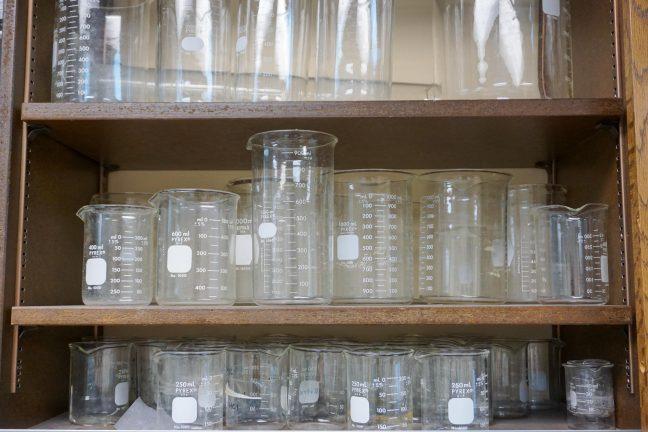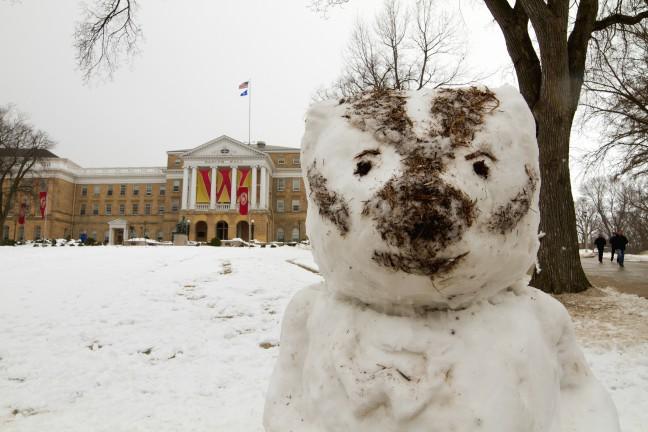Scientists have been facing growing levels of distrust from the public, crossing political lines.
A Sept. 11 opinion piece by Thomas Edsall in the New York Times said science denial comes from political motivations. Edsall also references the viewpoint of Dietram Scheufele, a professor at the University of Wisconsin’s Life Sciences Communication, who flips the argument by suggesting that science is lending itself to political motivation.
“Science has become a signaling device for liberals to distinguish themselves from what they see as anti-science Republicans,” Scheufele said. “That spells trouble.”
Scheufele said polarizing science harms an institution that relies on the perception that it is unbiased.
UW Professor Dominique Brossard, who chairs the Department of Life Science Communication, said that Americans are losing faith in scientists, not science.
“The notion that fundamentally there is a drop in trust in science in the United States is without evidence,” Brossard said. “There is a drop in trust in institutions overall, including medical science.”
Brossard said the politicization of science plays a key role in the growing distrust of scientists by Republicans. Scientists publicly embracing political positions harms the image of science as a neutral body, Brossard said. Similarly, linking left-leaning political messages with affirmations of belief in science has the same detrimental effect.
Not long ago, conservatives and liberals had similar views on scientists and their institutions. Pew Research Center found that in April 2020, 85% of U.S. adult Republicans and 91% of Democrats believed scientists acted in the best interest of the country. As of 2023, this figure has dropped to 61% for Republicans and 86% for Democrats, a 25-point shift, according to Pew Research Center.
UW LSC Professor Todd Newman said scientists engage with the public in ways that don’t help build trust. Instead, scientists should aim for more public input as a way to improve their standing, Newman said.
“Scientists go into communicating expecting their audiences to see that same wonder and curiosity about the unknown the same way that they do,” Newman said. “There needs to be more ways in emphasizing and showing how society can be engaged and be a part of research.”
Newman said scientists should not be expected to always communicate their work to the public. Institutions like Extension & Outreach at the UW College of Agriculture and Life Sciences were built specifically for communication and community outreach to Wisconsin’s farmers about the work and research done at the university.
Newman believes scientists can begin to re-engage the public by taking a step back.
“It’s about science as an institution showing some humility and valuing the public sentiment into the work that’s being done,” Newman said.
In an article Brossard and Scheufele co-authored, they point to “trust fallacies,” which are oversimplified explanations for why people behave in ways that scientists consider uninformed. Trust in science erodes when scientists rely on authority and political figures to inform the public, politicizing the issue, the article says.
Scientists’ misunderstanding of trust leads them to pursue paths that don’t seriously examine why trust has eroded and instead focus on a lack of information, according to the article. This ‘deficit’ model is not the cause of distrust and simply providing more information won’t restore public trust in scientists.
“Overall, trust in science is so nuanced and sensitive to contextual factors that it’s difficult to measure, much less to compare, trust levels across contexts and across time, unless the questions are repeatedly asked in very similar ways,” the article reads. “Once we acknowledge the complexity of trust as a social phenomenon, it is easy to pull at the threads that unravel the trust fallacy.”
People adopt anti-science views after undergoing political polarization, according to the article. If scientists want to start gaining back trust, they need to better understand the nuanced and complex reasons they lost it in the first place.
Looking forward, Brossard, Sheufele and Newman see even bigger issues on the horizon for scientists. The explosion of progress in AI has caused public alarm and fear it’s progressing too fast. Private companies have monopolistic control over cutting-edge technologies with unknown limits.
“There’s something to understanding, with any kind of science and emerging tech that’s coming out now, understanding from the early stages what are the ethical and moral issues that may come up,” Newman said.








